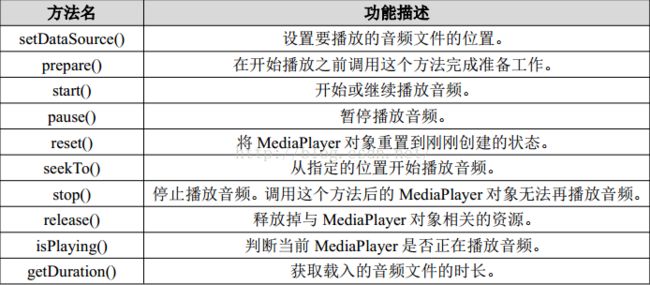- 七个合法学习黑客技术的平台,让你从萌新成为大佬
黑客白帽子黑爷
学习php开发语言web安全网络
1、HackThisSite提供在线IRC聊天和论坛,让用户交流更加方便。网站涵盖多种主题,包括密码破解、网络侦察、漏洞利用、社会工程学等。非常适用于个人提高网络安全技能2、HackaDay涵盖多个领域,包括黑客技术、科技、工程和DIY等内容,站内提供大量有趣的文章、视频、教程和新闻,帮助用户掌握黑客技术和DIY精神。3、OffensiveSecurity一个专门提供网络安全培训和认证的公司,课程
- 家政一城一店融合小程序怎么开通,需要哪些资质?
郑州拽牛科技
开源软件系统架构大数据小程序微信小程序
手把手教你开通洗衣洗鞋团购上门融合小程序!⚠️抖音新规重大调整!2025年起家政洗护必须"一城一店"(全国仅限365家连锁资质,地级市单店垄断!)开通秘籍三步走:✅核心资质:营业执照+法人身份证+商标注册证✅硬件证明:门头实拍图+室内全景视频+高德精准定位✅平台认证:ICP许可证+电信增值业务许可证(缺一不可!)遇到难题?90%商家都卡在这3个环节:1️⃣资质不全无法过审?2️⃣小程序功能不会搭建
- NX二次开发-UFUN重新分配内存UF_reallocate_memory
阿飞2018
UG二次开发(C++)c++
版本NX9+VS2012例子说明关于这个分配内存UF_allocate_memory和重新分配内存UF_reallocate_memory,我之前是在唐工的视频中学过。但是我做了这两年开发,虽然没开发过多少东西。但是还真的从来都没用过分配内存和重新分配内存。都忘记有这个东西的存在了快。这东西也就在C语言开发中,才会有,要是用C#开发的话,都不会有指针这些东西。也不用那么麻烦。我试过想自己单独写一个
- 【LangChain编程:从入门到实践】实现多模态代理
AI天才研究院
DeepSeekR1&大数据AI人工智能大模型AI大模型企业级应用开发实战AI大模型应用入门实战与进阶计算科学神经计算深度学习神经网络大数据人工智能大型语言模型AIAGILLMJavaPython架构设计AgentRPA
【LangChain编程:从入门到实践】实现多模态代理作者:禅与计算机程序设计艺术/ZenandtheArtofComputerProgramming关键词:LangChain编程,多模态代理,自然语言处理,多媒体数据融合,复杂任务解决能力1.背景介绍1.1大背景与问题的提出随着人工智能技术的飞速发展,尤其是大模型在自然语言处理领域的突破,如通义千问、通义万相、阿里云通义大模型等,我们正迎来一个全
- android:onClick 无法成功映射到对应Activity问题的解决过程记录
陈金鑫
android
在学习android静态绑定按钮点击事件时出现报错:08-1300:30:32.510:E/AndroidRuntime(2039):java.lang.IllegalStateException:Couldnotexecutemethodoftheactivity08-1300:30:32.510:E/AndroidRuntime(2039): atandroid.view.View$1.o
- 最通用的跨平台引擎:ShiVa 3D引擎
pizi0475
图形图像其它文章图形引擎游戏引擎引擎跨平台脚本服务器sslsoap
ShiVa3D引擎是最通用的跨平台引擎,可以在Web浏览器运行并且也支持Windows,Mac,Linux,Wii,iPhone,iPad,Android,WebOS和AirplaySDK。该引擎支持SSL–securized插件扩展,很像PhysX引擎,FMOD声音库,ARToolkit和ScaleformHUD引擎。ClassicGeometry经典的图形处理支持多边形网,其中包括:-静态网格
- 使用 Microsoft OneDrive 加载文档的指南
shuoac
microsoftonedrivepython
技术背景介绍MicrosoftOneDrive(以前称为SkyDrive)是由微软运营的文件托管服务。通过OneDrive,你可以在云端存储和共享文档、照片、视频等数据。本文将介绍如何从OneDrive加载文档,目前支持的文件格式包括docx、doc和pdf。核心原理解析为了能够从OneDrive加载文档,需要进行以下几个步骤:注册应用程序以获取客户端ID和密钥。获取OneDrive的DriveI
- OpenCV开源机器视觉软件
视觉人机器视觉
杂说opencv开源人工智能
OpenCV(OpenSourceComputerVisionLibrary)是一个开源的计算机视觉和机器学习软件库,广泛应用于实时图像处理、视频分析、物体检测、人脸识别等领域。它由英特尔实验室于1999年发起,现已成为计算机视觉领域最流行的工具之一,支持多种编程语言(如C++、Python、Java)和操作系统(Windows、Linux、macOS、Android、iOS)。核心功能图像处理基
- 视频HDR技术详解,你的电脑怎么播放HDR视频?
modest —YBW
音视频
闲聊:前两天在b站上面看到影视飓风的视频,让我有点疑惑,我不知道为什么播放视频有设备撑不住一说,所以感兴趣去ytb下载了4k原片30hz刷新的,然后测试一下我的电脑能不能播放,发现还是可以的,视觉上看起来是十分震撼的,所以想借此机会学习一下HDR,感兴趣的同学可以也下载一下这个片子,我给一个百度网盘链接,看看自己的电脑能不能播放:通过网盘分享的文件:HDR视频播放测试与播放器potplayer的安
- RK3568平台开发系列讲解(内核篇)Linux 内核启动流程
内核笔记
RK3568linux
更多内容可以加入Linux系统知识库套餐(教程+视频+答疑)返回专栏总目录文章目录一、Linux内核启动流程导图二、自解压阶段三、内核运行入口四、汇编阶段五、C函数阶段六、启动内核现场七、执行第一个应用init程序沉淀、分享、成长,让自己和他人都能有所收获!一、Linux内核启动流程导图自解压:Bootlo
- android——Livedata、StateFlow、ShareFlow和Channel的介绍和使用
wy313622821
kotlin-javaandroid
目录一、LiveData介绍二、StateFlow介绍三、ShareFlow介绍四、Channel介绍小结一、LiveData介绍LiveData是一种在Android开发中用于观察数据变化的组件。它可以被观察者注册并在数据变化时通知观察者,从而实现数据的实时更新。LiveData具有生命周期感知能力,它会自动管理观察者的生命周期,确保观察者只会在活动状态下接收数据更新。示例代码classMyVi
- 大模型专栏博文汇总和索引
Donvink
大模型transformer深度学习人工智能语言模型
大模型专栏主要是汇总了我在学习大模型相关技术期间所做的一些总结和笔记,主要包括以下几个子专栏:DeepSeek-R1AIGC大模型实践Transformer多模态系统视频理解对比学习目标检测目标跟踪图神经网络大模型专栏汇总了以上所有子专栏的论文,目前暂时先按照不同的技术领域划分子专栏,子专栏之间的内容可能会有交集,不完全是独立的。为了方便查阅相关模块的内容,故以此文章进行汇总与索引。一、DeepS
- 技术教程 | 如何实现1v1音视频通话(含源码)
网易数智
WebRTC音视频ai人工智能实时音视频语音识别实时互动信息与通信
今天,给大家讲一下怎么实现1v1音视频通话,以下是教程内容:开发环境开发环境要求如下:环境要求说明JDK版本1.8.0及以上版本AndroidAPI版本API21、AndroidStudio5.0及以上版本CPU架构ARM64、ARMV7IDEAndroidStudio其他依赖Androidx,不支持support库。注意事项1对1娱乐社交场景方案的呼叫能力基于云信呼叫组件,技术原理一对一通话功能
- Android LiveData(一):介绍和简单使用
且听风吟9527
框架原理LiveData框架原理源码分析
传统的组件间的通信方式有Handler、BroadcastReceiver,Interface、EventBus等等方式实现,他们有自己适合的应用场景,也有各自的弊端。这里介绍新的组件通信同时LiveData,它是一个数据持有类,具有以下特点:数据可以被观察者订阅能够感知组件(Fragment、Activity、Service))的生命周期组件处于active状态时,会通知观察者有数据更新对于观察
- LiveData真的会被Flow替代吗?
Android-Developer
android
LiveData和Flow都是Android中用于响应式编程的工具,但它们有不同的使用场景和优缺点。先看一下LiveData和Flow的简单使用:LiveData是一种可观察的数据持有者,它可以感知生命周期并在数据发生变化时通知观察者。在Android中,LiveData通常用于将数据从ViewModel传递到UI层。以下是LiveData的使用步骤:1.创建LiveData对象可以通过继承Liv
- 阿里重磅模型深夜开源;DeepSeek宣布开源DeepGEMM;微软开源多模态AI Agent基础模型Magma...|网易数智日报
网易数智
网易数智日报开源人工智能大数据业界资讯aiAIGC
阿里重磅模型深夜开源:表现超越Sora、Pika,消费级显卡就能跑2月26日,25日深夜阿里云视频生成大模型万相2.1(Wan)正式宣布开源,此次开源采用Apache2.0协议,14B和1.3B两个参数规格的全部推理代码和权重全部开源,同时支持文生视频和图生视频任务。据阿里云官方介绍,14B版本万相模型在指令遵循、复杂运动生成、物理建模、文字视频生成等方面表现突出,在权威评测集Vbench中,万相
- Android开发实战班 - 应用架构 - LiveData/Flow 数据流
老码小张
Android开发实战班android架构
在MVVM架构中,数据流是连接ViewModel和View的重要桥梁,用于实现数据的观察和响应。Jetpack提供了两种主要的数据流机制:LiveData和Flow。本章节将深入讲解LiveData和Flow的概念、使用方法、区别以及在实际开发中的应用场景,帮助学员掌握数据流的应用。数据流概述数据流的作用:数据流用于在ViewModel和View之间传递数据,实现数据的观察和响应。数据流可以感知生
- 【openCV-89】人脸检测
华东算法王
华东算法王-opencvopencv人工智能计算机视觉
人脸检测简介人脸检测是计算机视觉中的一个重要任务,旨在从图像或视频中识别并定位出人脸的位置。人脸检测不仅是人脸识别、表情分析、面部特征点检测等高级任务的前置步骤,而且在安防监控、智能家居、自动驾驶等多个领域都具有广泛应用。人脸检测的目标人脸检测的目标是从输入的图像或视频流中自动检测出所有人脸的区域,通常用矩形框(boundingbox)表示人脸的位置。人脸检测不仅要识别图像中的人脸,还要在各种条件
- 代码随想录 Day 37 | 【第九章 动态规划part 01】理论基础、509. 斐波那契数、70. 爬楼梯、746. 使用最小花费爬楼梯
Accept17
动态规划算法
一、理论基础理论基础无论大家之前对动态规划学到什么程度,一定要先看我讲的动态规划理论基础。如果没做过动态规划的题目,看我讲的理论基础,会有感觉是不是简单题想复杂了?其实并没有,我讲的理论基础内容,在动规章节所有题目都有运用,所以很重要!如果做过动态规划题目的录友,看我的理论基础就会感同身受了。代码随想录视频:从此再也不怕动态规划了,动态规划解题方法论大曝光!|理论基础|力扣刷题总结|动态规划入门_
- 【教程4>第1章>第4节】FPGA时序图制作小工具
fpga和matlab
#fpga开发时序图
欢迎订阅《★教程1:matlab入门100例》《★教程2:fpga入门100例》《★教程3:simulink入门60例》《★教程4:FPGA/MATLAB/Simulink联合应用开发入门与进阶X例》教程4·目录·目录1.软件版本2.FPGA时序图概述3.FPGA时序图绘制4.视频操作步骤5.总结与展望
- DroidDissector本地部署
想做后端的小C
linux运维服务器
DroidDissector本地部署我启动的是MediumPhoneAPI30安卓虚拟机先决条件:把frida-server推送到虚拟机的/data/local/tmp/目录中cdH:\frida_serveradbpushH:\frida_server\frida-server-16.6.6-android-x86/data/local/tmp/
- 二叉树相关问题及两链表相交问题(B站左神视频五整理)
Dabaozao
链表c++算法数据结构
二叉树二叉树的前中后序遍历:*******1***2*****34****56****7经过1,2,4,4,4,2,5,5,5,2,1,3,6,6,6,3,7,7,7,3,1,递归序每个数都会调用三次先序遍历:头、左、右1,2,4,5,3,6,7由递归序转化而来,第一次到就打印,2、3次的不打印中序遍历:左、头、右4,2,5,1,6,3,7由递归序转化而来,第二次到就打印,1、3次的不打印后序遍历
- 深入Android HandlerThread 使用及其源码完全解析
ThreadLocalForrest
androidjavaui
本篇我们将来给大家介绍HandlerThread这个类,以前我们在使用线程执行一个耗时任务时总会new一个Thread的线程去跑,当任务执行完后,线程就会自动被销毁掉,如果又由新的任务,我们又得新建线程.....我们假设这样的一个情景,我们通过listview去加载图文列表,当我们往下滑动时,这时需要不断去请求网络资源,也就是需要不断开线程去加载网络资源,如果每次都new一个Thread,这显然是
- 前端学习资料集合
mdnbnb
前端
针对前端的学习,不同阶段采用的方式是不一样的。本文把前端的学习分为入门、实战、进阶三个阶段。下面分开来说一、入门阶段入门阶段的目标是学会前端的基本语法和知识,能够解决一些简单的问题。这个阶段不建议看书学习,效率太慢。这个阶段不追求知识广度,只要求能够快速上手就行。建议直接找一些介绍前端的基础知识的视频课程来看。推荐一个比较经典的课程。前端基础班就业班实战项目全套课程聊聊前端开发的基础知识4小时带你
- MFC文件和注册表的操作
Chasing追~
mfc操作系统mfcc++windows
MFC文件和注册表的操作日志、操作配置文件、ini、注册表、音视频的文件存储Linux下一切皆文件C/C++操作文件constchar*与char*constconstchar*常量指针,表示指向的内容为常量。指针可以指向其他变量,但是内容不能再变了charszName[6]="Bingo";constchar*pName=szName;*pName='b';错误//pName常量指针,表示指向的
- 爬取淘宝商品链接的图片和视频-第一部分
yunAike
前端javascript开发语言python
输入需要爬取商品品类的网址和需要爬取的页数,程序将爬取所有商品的链接输入需要爬取商品品类的网址和需要爬取的页数,程序将爬取所有商品的链接importtimefromDrissionPageimportChromiumPageimportcsvfromlxmlimportetreeimportjsonimportos#确保存放数据的data文件夹存在,若不存在就创建folder_path=r".\d
- AI+RPA:开启智能自动化新时代
coding侠客
AI+RPA系列人工智能rpa自动化python
不知大家在日常的购物中,有没有想过,京东,淘宝等平台面对如此庞大的用户量,618,双十一等活动期间的各种报表是如何快速生成的呢?当我们刷短视频时,可曾疑惑过,为何相似主题的短视频,有的点赞,评论等互动量很高,有些却很少?直播带货公司为何能迅速崛起?还有,在面对大批量数据校验时,如何高效完成任务?答案或许就藏在RPA之中。本文将探讨在AI时代,RPA与AI的紧密结合,将会给我们带来哪些机会。一、RP
- Qt+Vs实现使用ffmpeg拉流显示推流视频(附源代码)
鬼魅-9527
QtC++ffmpegqtffmpeg
下面是通过ffmpeg拉流解码显示推流的视频,通过openGL绘制视频。废话不多说,直接上代码拉流头文件ffmpegutils.h#ifndefFFMPEGUTILS_H#defineFFMPEGUTILS_H#include#include#include#include#include#include#includeextern"C"{#include#include#include#incl
- 【音视频】编解码相关概念总结
gma999
音视频
NALURTPPS流三者总体关系NALU在RTP中的应用:视频流的RTP传输通常将NALU作为基本的单元进行传输。每个RTP包携带一个或多个NALU,这些NALU包含了视频编码数据。RTP协议通过其头部信息(如时间戳、序列号等)帮助接收端重新排列和解码这些NALUPS流和NALU的转化:PS流本质上是一个容器,它可以封装多个NALU。在将PS流通过网络传输时,通常会将其分解成一个个NALU,然后通
- 一周学会Flask3 Python Web开发-Jinja2模版中加载静态文件
java1234_小锋
Flask3视频教程pythonflaskflask3
锋哥原创的Flask3PythonWeb开发Flask3视频教程:2025版Flask3Pythonweb开发视频教程(无废话版)玩命更新中~_哔哩哔哩_bilibili一个Web项目不仅需要HTML模板,还需要许多静态文件,比如CSS、JavaScript文件、图片以及音频等。在Flask程序中,默认我们需要将静态文件存储在与主脚本(包含程序实例的脚本)同级目录的static文件夹中。在Jinj
- springmvc 下 freemarker页面枚举的遍历输出
杨白白
enumfreemarker
spring mvc freemarker 中遍历枚举
1枚举类型有一个本地方法叫values(),这个方法可以直接返回枚举数组。所以可以利用这个遍历。
enum
public enum BooleanEnum {
TRUE(Boolean.TRUE, "是"), FALSE(Boolean.FALSE, "否");
- 实习简要总结
byalias
工作
来白虹不知不觉中已经一个多月了,因为项目还在需求分析及项目架构阶段,自己在这段
时间都是在学习相关技术知识,现在对这段时间的工作及学习情况做一个总结:
(1)工作技能方面
大体分为两个阶段,Java Web 基础阶段和Java EE阶段
1)Java Web阶段
在这个阶段,自己主要着重学习了 JSP, Servlet, JDBC, MySQL,这些知识的核心点都过
了一遍,也
- Quartz——DateIntervalTrigger触发器
eksliang
quartz
转载请出自出处:http://eksliang.iteye.com/blog/2208559 一.概述
simpleTrigger 内部实现机制是通过计算间隔时间来计算下次的执行时间,这就导致他有不适合调度的定时任务。例如我们想每天的 1:00AM 执行任务,如果使用 SimpleTrigger,间隔时间就是一天。注意这里就会有一个问题,即当有 misfired 的任务并且恢复执行时,该执行时间
- Unix快捷键
18289753290
unixUnix;快捷键;
复制,删除,粘贴:
dd:删除光标所在的行 &nbs
- 获取Android设备屏幕的相关参数
酷的飞上天空
android
包含屏幕的分辨率 以及 屏幕宽度的最大dp 高度最大dp
TextView text = (TextView)findViewById(R.id.text);
DisplayMetrics dm = new DisplayMetrics();
text.append("getResources().ge
- 要做物联网?先保护好你的数据
蓝儿唯美
数据
根据Beecham Research的说法,那些在行业中希望利用物联网的关键领域需要提供更好的安全性。
在Beecham的物联网安全威胁图谱上,展示了那些可能产生内外部攻击并且需要通过快速发展的物联网行业加以解决的关键领域。
Beecham Research的技术主管Jon Howes说:“之所以我们目前还没有看到与物联网相关的严重安全事件,是因为目前还没有在大型客户和企业应用中进行部署,也就
- Java取模(求余)运算
随便小屋
java
整数之间的取模求余运算很好求,但几乎没有遇到过对负数进行取模求余,直接看下面代码:
/**
*
* @author Logic
*
*/
public class Test {
public static void main(String[] args) {
// TODO A
- SQL注入介绍
aijuans
sql注入
二、SQL注入范例
这里我们根据用户登录页面
<form action="" > 用户名:<input type="text" name="username"><br/> 密 码:<input type="password" name="passwor
- 优雅代码风格
aoyouzi
代码
总结了几点关于优雅代码风格的描述:
代码简单:不隐藏设计者的意图,抽象干净利落,控制语句直截了当。
接口清晰:类型接口表现力直白,字面表达含义,API 相互呼应以增强可测试性。
依赖项少:依赖关系越少越好,依赖少证明内聚程度高,低耦合利于自动测试,便于重构。
没有重复:重复代码意味着某些概念或想法没有在代码中良好的体现,及时重构消除重复。
战术分层:代码分层清晰,隔离明确,
- 布尔数组
百合不是茶
java布尔数组
androi中提到了布尔数组;
布尔数组默认的是false, 并且只会打印false或者是true
布尔数组的例子; 根据字符数组创建布尔数组
char[] c = {'p','u','b','l','i','c'};
//根据字符数组的长度创建布尔数组的个数
boolean[] b = new bool
- web.xml之welcome-file-list、error-page
bijian1013
javaweb.xmlservleterror-page
welcome-file-list
1.定义:
<welcome-file-list>
<welcome-file>login.jsp</welcome>
</welcome-file-list>
2.作用:用来指定WEB应用首页名称。
error-page1.定义:
<error-page&g
- richfaces 4 fileUpload组件删除上传的文件
sunjing
clearRichfaces 4fileupload
页面代码
<h:form id="fileForm"> <rich:
- 技术文章备忘
bit1129
技术文章
Zookeeper
http://wenku.baidu.com/view/bab171ffaef8941ea76e05b8.html
http://wenku.baidu.com/link?url=8thAIwFTnPh2KL2b0p1V7XSgmF9ZEFgw4V_MkIpA9j8BX2rDQMPgK5l3wcs9oBTxeekOnm5P3BK8c6K2DWynq9nfUCkRlTt9uV
- org.hibernate.hql.ast.QuerySyntaxException: unexpected token: on near line 1解决方案
白糖_
Hibernate
文章摘自:http://blog.csdn.net/yangwawa19870921/article/details/7553181
在编写HQL时,可能会出现这种代码:
select a.name,b.age from TableA a left join TableB b on a.id=b.id
如果这是HQL,那么这段代码就是错误的,因为HQL不支持
- sqlserver按照字段内容进行排序
bozch
按照内容排序
在做项目的时候,遇到了这样的一个需求:
从数据库中取出的数据集,首先要将某个数据或者多个数据按照地段内容放到前面显示,例如:从学生表中取出姓李的放到数据集的前面;
select * fro
- 编程珠玑-第一章-位图排序
bylijinnan
java编程珠玑
import java.io.BufferedWriter;
import java.io.File;
import java.io.FileWriter;
import java.io.IOException;
import java.io.Writer;
import java.util.Random;
public class BitMapSearch {
- Java关于==和equals
chenbowen00
java
关于==和equals概念其实很简单,一个是比较内存地址是否相同,一个比较的是值内容是否相同。虽然理解上不难,但是有时存在一些理解误区,如下情况:
1、
String a = "aaa";
a=="aaa";
==> true
2、
new String("aaa")==new String("aaa
- [IT与资本]软件行业需对外界投资热情保持警惕
comsci
it
我还是那个看法,软件行业需要增强内生动力,尽量依靠自有资金和营业收入来进行经营,避免在资本市场上经受各种不同类型的风险,为企业自主研发核心技术和产品提供稳定,温和的外部环境...
如果我们在自己尚未掌握核心技术之前,企图依靠上市来筹集资金,然后使劲往某个领域砸钱,然
- oracle 数据块结构
daizj
oracle块数据块块结构行目录
oracle 数据块是数据库存储的最小单位,一般为操作系统块的N倍。其结构为:
块头--〉空行--〉数据,其实际为纵行结构。
块的标准大小由初始化参数DB_BLOCK_SIZE指定。具有标准大小的块称为标准块(Standard Block)。块的大小和标准块的大小不同的块叫非标准块(Nonstandard Block)。同一数据库中,Oracle9i及以上版本支持同一数据库中同时使用标
- github上一些觉得对自己工作有用的项目收集
dengkane
github
github上一些觉得对自己工作有用的项目收集
技能类
markdown语法中文说明
回到顶部
全文检索
elasticsearch
bigdesk elasticsearch管理插件
回到顶部
nosql
mapdb 支持亿级别map, list, 支持事务. 可考虑做为缓存使用
C
- 初二上学期难记单词二
dcj3sjt126com
englishword
dangerous 危险的
panda 熊猫
lion 狮子
elephant 象
monkey 猴子
tiger 老虎
deer 鹿
snake 蛇
rabbit 兔子
duck 鸭
horse 马
forest 森林
fall 跌倒;落下
climb 爬;攀登
finish 完成;结束
cinema 电影院;电影
seafood 海鲜;海产食品
bank 银行
- 8、mysql外键(FOREIGN KEY)的简单使用
dcj3sjt126com
mysql
一、基本概念
1、MySQL中“键”和“索引”的定义相同,所以外键和主键一样也是索引的一种。不同的是MySQL会自动为所有表的主键进行索引,但是外键字段必须由用户进行明确的索引。用于外键关系的字段必须在所有的参照表中进行明确地索引,InnoDB不能自动地创建索引。
2、外键可以是一对一的,一个表的记录只能与另一个表的一条记录连接,或者是一对多的,一个表的记录与另一个表的多条记录连接。
3、如
- java循环标签 Foreach
shuizhaosi888
标签java循环foreach
1. 简单的for循环
public static void main(String[] args) {
for (int i = 1, y = i + 10; i < 5 && y < 12; i++, y = i * 2) {
System.err.println("i=" + i + " y="
- Spring Security(05)——异常信息本地化
234390216
exceptionSpring Security异常信息本地化
异常信息本地化
Spring Security支持将展现给终端用户看的异常信息本地化,这些信息包括认证失败、访问被拒绝等。而对于展现给开发者看的异常信息和日志信息(如配置错误)则是不能够进行本地化的,它们是以英文硬编码在Spring Security的代码中的。在Spring-Security-core-x
- DUBBO架构服务端告警Failed to send message Response
javamingtingzhao
架构DUBBO
废话不多说,警告日志如下,不知道有哪位遇到过,此异常在服务端抛出(服务器启动第一次运行会有这个警告),后续运行没问题,找了好久真心不知道哪里错了。
WARN 2015-07-18 22:31:15,272 com.alibaba.dubbo.remoting.transport.dispatcher.ChannelEventRunnable.run(84)
- JS中Date对象中几个用法
leeqq
JavaScriptDate最后一天
近来工作中遇到这样的两个需求
1. 给个Date对象,找出该时间所在月的第一天和最后一天
2. 给个Date对象,找出该时间所在周的第一天和最后一天
需求1中的找月第一天很简单,我记得api中有setDate方法可以使用
使用setDate方法前,先看看getDate
var date = new Date();
console.log(date);
// Sat J
- MFC中使用ado技术操作数据库
你不认识的休道人
sqlmfc
1.在stdafx.h中导入ado动态链接库
#import"C:\Program Files\Common Files\System\ado\msado15.dll" no_namespace rename("EOF","end")2.在CTestApp文件的InitInstance()函数中domodal之前写::CoIniti
- Android Studio加速
rensanning
android studio
Android Studio慢、吃内存!启动时后会立即通过Gradle来sync & build工程。
(1)设置Android Studio
a) 禁用插件
File -> Settings... Plugins 去掉一些没有用的插件。
比如:Git Integration、GitHub、Google Cloud Testing、Google Cloud
- 各数据库的批量Update操作
tomcat_oracle
javaoraclesqlmysqlsqlite
MyBatis的update元素的用法与insert元素基本相同,因此本篇不打算重复了。本篇仅记录批量update操作的
sql语句,懂得SQL语句,那么MyBatis部分的操作就简单了。 注意:下列批量更新语句都是作为一个事务整体执行,要不全部成功,要不全部回滚。
MSSQL的SQL语句
WITH R AS(
SELECT 'John' as name, 18 as
- html禁止清除input文本输入缓存
xp9802
input
多数浏览器默认会缓存input的值,只有使用ctl+F5强制刷新的才可以清除缓存记录。如果不想让浏览器缓存input的值,有2种方法:
方法一: 在不想使用缓存的input中添加 autocomplete="off"; eg: <input type="text" autocomplete="off" name

